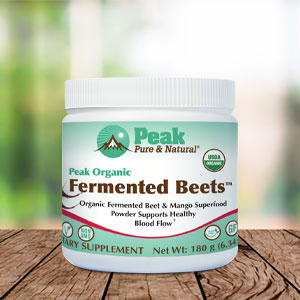At first, the discovery of artificial sweeteners was thought to be a good thing, especially for people looking for ways to lose weight.
Artificial sweeteners provided the sweetness of sugar without the calorie burden. Plus, people with diabetes were able to safely consume these sweeteners without spiking their blood sugar.
But in recent years, the dark side of artificial sweeteners has emerged. Research has shown these sweeteners can actually make changes to the gut microbiome that lead to weight gain. These changes can also increase the risk of type 2 diabetes.
That’s not all. Beverages containing artificial sweeteners have also been linked with an increased risk of death and dementia. And one study found artificial sweeteners were linked to increased risks for cardiovascular disease and cerebrovascular disease risk, which equates to higher stroke risk.
Then there are sugar alcohols like xylitol and erythritol, which are often touted as safer alternative sweeteners and are used extensively in low-sugar, sugar-free and keto reduced-sugar foods. Since they’re already derived from sugar, they should be fine, right?
Wrong….
How erythritol affects brain cells
Erythritol, a sugar alcohol first approved by the Food and Drug Administration in 2001, is typically made by fermenting corn. But research has begun to shed light on its risks.
Recently, research by the Cleveland Clinic linked erythritol to a higher risk of dangerous blood clot formation, which could lead to stroke.
Scientists led by the University of Colorado Boulder decided to dig into the mechanisms behind the Cleveland Clinic study results. What they discovered was alarming…
In the lab, the researchers treated endothelial cells, which line the blood vessels in the brain, for three hours with roughly the same amount of erythritol contained in a typical sugar-free beverage. The cells were found to be altered in numerous ways…
- The cells expressed significantly less nitric oxide, a molecule that relaxes and widens blood vessels for blood flow.
- At the same time, they expressed more endothelin-1, a protein that constricts blood vessels.
- And when the cells were challenged with a clot-forming compound called thrombin, cellular production of the natural clot-busting compound t-PA (the go-to treatment used during stroke emergencies) was “markedly blunted.”
To put it simply, the treated brain cells were affected in ways that could increase the likelihood of stroke.
As if that weren’t enough, the erythritol-treated cells also produced more reactive oxygen species, or free radicals. These metabolic byproducts can age and damage cells and inflame tissue.
“Our study adds to the evidence suggesting that non-nutritive sweeteners that have generally been purported to be safe may not come without negative health consequences,” says senior author Christopher DeSouza, a professor at CU Boulder.
“Big picture, if your vessels are more constricted and your ability to break down blood clots is lowered, your risk of stroke goes up,” says first author Auburn Berry, a graduate student in DeSouza’s lab. “Our research demonstrates not only that, but how erythritol has the potential to increase stroke risk.”
Another disconcerting aspect of the study is that the researchers only used one serving size of erythritol. If you consume more than a serving a day, as many people do, the impact could be even worse.
Which sweeteners to use instead
One caveat: the authors caution that their study was a laboratory study conducted on cells, so larger studies in people are needed to confirm these results.
Still, De Souza encourages consumers to read food labels, looking for erythritol or “sugar alcohol” in the list of ingredients.
“Given the epidemiological study that inspired our work, and now our cellular findings, we believe it would be prudent for people to monitor their consumption of non-nutrient-sweeteners such as this one,” he says.
So, what should you use instead? Look for natural non-sugar sweeteners like monkfruit and stevia, both of which are derived from plants and come in many delicious flavors. However, you need to read those labels as well — sometimes erythritol is used as filler in monkfruit and/or stevia sweeteners. Be sure you’re only using 100 percent pure stevia or monkfruit with no fillers.
Sources:
Scientists Warn: Popular Sugar Substitute Linked to Brain Cell Damage — SciTechDaily
The non-nutritive sweetener erythritol adversely affects brain microvascular endothelial cell function — Journal of Applied Physiology
Artificial sweeteners: Any effect on blood sugar? — Mayo Clinic
Read full article here




